Mark Ruzon
Mark Ruzon (No party preference) is running for election to the U.S. Senate to represent California. He is on the ballot in the primary on March 5, 2024.
Ruzon completed Ballotpedia's Candidate Connection survey in 2023. Click here to read the survey answers.
Biography
Mark Ruzon was born in Joliet, Illinois. Ruzon's professional experience includes working as a software engineer. He served on the board of directors for Peninsula Interfaith Action. Ruzon earned a bachelor's degree from the University of Southern California in 1994 and a Ph.D. from Stanford University in 2000.[1]
Ruzon has been affiliated with the American Solidarity Party and St. Athanasius Catholic Church.[1]
Elections
2024
See also: United States Senate election in California, 2024
General election
The primary will occur on March 5, 2024. The general election will occur on November 5, 2024. General election candidates will be added here following the primary.
Nonpartisan primary election
Nonpartisan primary for U.S. Senate California
The following candidates are running in the primary for U.S. Senate California on March 5, 2024.
Candidate | ||
 | Sharleta Bassett (R) | |
 | James P. Bradley (R) | |
 | Eric Early (R) | |
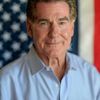 | Steve Garvey (R) | |
 | Denice Gary-Pandol (R)  | |
 | Laura Garza (No party preference) | |
 | Sepi Gilani (D)  | |
 | Don Grundmann (No party preference) | |
 | Forrest Jones (American Independent Party of California) | |
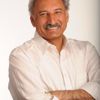 | Harmesh Kumar (D)  | |
 | Barbara Lee (D) | |
 | Sarah Sun Liew (R) | |
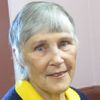 | Gail Lightfoot (L) | |
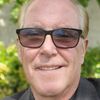 | James Macauley (R) | |
 | Christina Pascucci (D) | |
 | David Peterson (D)  | |
 | Douglas Howard Pierce (D) | |
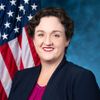 | Katie Porter (D) | |
 | Perry Pound (D)  | |
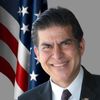 | Raji Rab (D) | |
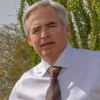 | Jonathan Reiss (R) | |
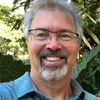 | John Rose (D)  | |
 | Mark Ruzon (No party preference)  | |
 | Adam Schiff (D) | |
 | Stefan Simchowitz (R) | |
 | Major Singh (No party preference) | |
 | Martin Veprauskas (R) | |
 | Eduardo Berdugo (Independent) (Write-in) | |
 | Danny Fabricant (R) (Write-in) | |
 = candidate completed the Ballotpedia Candidate Connection survey. = candidate completed the Ballotpedia Candidate Connection survey. | ||||
| If you are a candidate and would like to tell readers and voters more about why they should vote for you, complete the Ballotpedia Candidate Connection Survey. | ||||
Do you want a spreadsheet of this type of data? Contact our sales team. | ||||
Withdrawn or disqualified candidates
- Paul Anderson (G)
- Carson Franklin Jr. (D)
- Barack Obama Mandela (R)
- Zafar Inam (D)
- Renee Martinez (Independent)
- Lexi Reese (D)
- Peter Yuan Liu (R)
- Joe Sosinski (Independent)
- Roxanne Lawler (R)
- James Shuster (R)
- Frank Ferreira (Independent)
- Rommell Montenegro (D)
- Jeremy Fennell (D)
- Zakaria Kortam (R)
- John Pappenheim (R)
- Jacob Farmos (D)
- Joshua Bocanegra (D)
- Alexander Norbash (D)
- Dominick Dorothy (D)
- Jehu Hand (R)
- Dana Bobbitt (Independent)
- Fepbrina Keivaulqe Autiameineire (Vienmerisce Veittemeignzce USA)
- Jessica Resendez (D)
Endorsements
Ruzon received the following endorsements. To send us additional endorsements, click here.
2022
See also: United States Senate election in California, 2022
General election
General election for U.S. Senate California
Incumbent Alex Padilla defeated Mark Meuser in the general election for U.S. Senate California on November 8, 2022.
Candidate | % | Votes | ||
| ✔ | 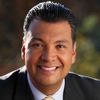 | Alex Padilla (D) | 61.1 | 6,621,621 |
 | Mark Meuser (R) | 38.9 | 4,222,029 | |
| Total votes: 10,843,650 | ||||
 = candidate completed the Ballotpedia Candidate Connection survey. = candidate completed the Ballotpedia Candidate Connection survey. | ||||
| If you are a candidate and would like to tell readers and voters more about why they should vote for you, complete the Ballotpedia Candidate Connection Survey. | ||||
Do you want a spreadsheet of this type of data? Contact our sales team. | ||||
Nonpartisan primary election
Nonpartisan primary for U.S. Senate California
The following candidates ran in the primary for U.S. Senate California on June 7, 2022.
Candidate | % | Votes | ||
| ✔ |  | Alex Padilla (D) | 54.1 | 3,725,544 |
| ✔ |  | Mark Meuser (R) | 14.9 | 1,028,374 |
 | Cordie Williams (R)  | 6.9 | 474,321 | |
 | Jonathan Elist (R)  | 4.2 | 289,716 | |
 | Chuck Smith (R)  | 3.9 | 266,766 | |
 | James P. Bradley (R) | 3.4 | 235,788 | |
 | Douglas Howard Pierce (D) | 1.7 | 116,771 | |
 | John Thompson Parker (Peace and Freedom Party)  | 1.5 | 105,477 | |
 | Sarah Sun Liew (R)  | 1.1 | 76,994 | |
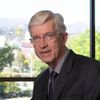 | Dan O'Dowd (D) | 1.1 | 74,916 | |
 | Akinyemi Agbede (D) | 1.0 | 70,971 | |
 | Myron Hall (R)  | 1.0 | 66,161 | |
 | Timothy Ursich Jr. (D)  | 0.8 | 58,348 | |
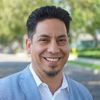 | Robert Lucero (R)  | 0.8 | 53,398 | |
 | James Henry Conn (G)  | 0.5 | 35,983 | |
 | Eleanor Garcia (Independent) | 0.5 | 34,625 | |
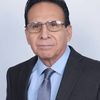 | Carlos Guillermo Tapia (R) | 0.5 | 33,870 | |
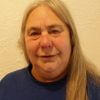 | Pamela Elizondo (G) | 0.5 | 31,981 | |
 | Enrique Petris (R) | 0.5 | 31,883 | |
 | Obaidul Huq Pirjada (D) | 0.4 | 27,889 | |
 | Daphne Bradford (Independent)  | 0.4 | 26,900 | |
 | Don Grundmann (Independent) | 0.1 | 10,181 | |
 | Deon Jenkins (Independent) | 0.1 | 6,936 | |
 | Mark Ruzon (No party preference) (Write-in) | 0.0 | 206 | |
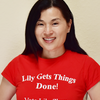 | Lily Zhou (R) (Write-in) | 0.0 | 58 | |
 | Irene Ratliff (No party preference) (Write-in)  | 0.0 | 7 | |
 | Marc Roth (No party preference) (Write-in) | 0.0 | 1 | |
| Total votes: 6,884,065 | ||||
 = candidate completed the Ballotpedia Candidate Connection survey. = candidate completed the Ballotpedia Candidate Connection survey. | ||||
| If you are a candidate and would like to tell readers and voters more about why they should vote for you, complete the Ballotpedia Candidate Connection Survey. | ||||
Do you want a spreadsheet of this type of data? Contact our sales team. | ||||
Withdrawn or disqualified candidates
- Chloe Hollett-Billingsley (D)
- Dhruva Herle (D)
- Chris Theodore (D)
- Ernest Taylor (D)
- B. John-Michael Williams (Independent)
- Marie Encar Arnold (D)
- Peter Yuan Liu (R)
- Brian Ainsworth (R)
- Yvonne Girard (R)
- Elizabeth Heng (R)
- Erik Urbina (R)
- Denard Ingram (D)
- Ellerton Whitney (L)
- Danny Fabricant (R)
- Fepbrina Keivaulqe Autiameineire (Independent)
- Paul Gutierrez (R)
- Mary Glory Thach (Independent)
Campaign themes
2024
Ballotpedia survey responses
See also: Ballotpedia's Candidate Connection
Mark Ruzon completed Ballotpedia's Candidate Connection survey in 2023. The survey questions appear in bold and are followed by Ruzon's responses. Candidates are asked three required questions for this survey, but they may answer additional optional questions as well.
| Collapse all
I am the chair of the American Solidarity Party of California, which has endorsed me. I am a Roman Catholic, a husband of 27 years, and a father of four. I have been a Republican, a Democrat, and an independent, and I have found them all wanting; I believe the ASP's philosophy offers America the best chance to ensure the full flourishing of society. I have been active in politics for 20 years, starting with advocacy for the Opportunity Center in Palo Alto, which provides housing and services for the homeless. I was chair of the Board of Directors for Peninsula Interfaith Action, a multi-faith community organizing non-profit seeking justice for communities. I have taught children to love chess, baseball, soccer, and scouting. My day job is software engineering.
- Families are the fundamental building blocks of society. Today, there are not enough families being created in America, and we are not doing enough to sustain existing families. My campaign's primary focus is on supporting the American family.
- Every human being has an inviolable dignity that must be acknowledged and upheld, and all human beings have the right to live and be protected from harm.
- Recent events have shown a great need for an overhaul of our democratic institutions to ensure fair representation and justice for all.
I see universal health care as the key to unlocking lots of America's economic difficulties. In 1980 governments (federal, state, and local) devoted about 6% of GDP on health care. Now it's 20%. That difference is why low-cost manufacturing and many good jobs left for China, because the margins were too low to cover health care costs. Also, millions of people lost their jobs during the pandemic, and with it their health insurance. No sane person would design a health care system with a feature like that. Universal health care would also level the playing field between big corporations that can afford to insure their workers versus small- and medium-sized businesses that cannot.
I want to improve the quality of voting, elections, and representation in our democracy. The two ways that in my view are simplest to implement and would have the greatest impact are Ranked Choice Voting (RCV) and proportional representation. RCV allows voters to make their preferences fully known without forcing them to guess which candidate is most likely to beat the candidate they don't like. It also encourages positive campaigning as candidates compete for all voters. Proportional representation allocates seats based on actual vote shares instead of winner-take-all systems that distort the voters' will.
Housing is a unique area of our economy because, unlike shares of stock, houses are lived in. I want to give more families more opportunity to own their own home.
Elected officials should have a commitment to the common good. When making decisions about how to write laws, officials must not place special interests above the good of the people. An elected official should be honest with the public when it comes to the trade-offs that inevitably need to be made on an issue. The valid points of those who disagree must be acknowledged; it is not a betrayal of one's cause to point out what is good in someone else's argument.
An elected official is also a leader, and so, having spent more time understanding details of important issues than most people, they are responsible for communicating to the public what they know and what they have learned from considering different sides of an issue. Sometimes that means they will be able to see a little farther ahead, and they should take the time to explain where a trend is headed.
Finally, an elected official should be flexible. Elected officials are powerful, and even the President cannot get everything he wants when he wants it. Elected officials should be wise enough to understand that the perfect should not become the enemy of the good.
I'm a software engineer by trade. Building software systems involves a dispassionate understanding of the goals that need to be achieved and the facts and the available resources and making trade-offs that will best achieve the goal. I plan to bring these same analytical skills to the U.S. Senate.
I bring a kindness that is best exemplified by my willingness to listen. No matter what my policy disagreements with someone might be, I try to see that person as having an innate dignity and a cousin within this big human family we are all in.
I was an 8-year-old 3rd grader in the fall of 1980 when my teacher, Mrs. Egan, had us all write a paragraph explaining whether we would vote for Jimmy Carter or Ronald Reagan and why. I do not remember the reasons I gave for voting for Reagan; I do remember the vote being in his favor something like 18-11 and being very glad to have been on the winning side. In retrospect, the outcome was not particularly surprising, as Will County, Illinois, being mostly past the outer ring of Chicago suburbs at that time, was strongly Republican. 8-year-olds' political universes are mostly limited to the thoughts and leanings of their parents, a fact that was driven home by watching the first of the famous BBC film series "Seven Up!"
Growing up in that area gave me the typical conservative views of Republicans in the '80s and '90s: low taxes, free enterprise, small government. I kept these views as a Californian during my 20s until about 2004 when Republicans, who had had control of both branches of Congress and the presidency for 2 years, failed to address the tragedy of abortion in any meaningful way. The cynicism of watching the government pass tax cuts for the wealthy while using abortion as a way to get poor people to vote against their own economic interests, plus a growing realization that it wasn't enough to tell the poor that they had the "freedom" to improve their lot in life and leave it at that, led me to become a Democrat.
I stayed a pro-life Democrat for over a decade as that wing of the party slowly dried up from lack of support until after the 2016 election, when the Democratic National Committee announced that no pro-life Democrat would receive support from the national party. Since I no longer felt wanted, I left, and a year later found the American Solidarity Party, where I have been happy ever since.
My favorite book is actually a series: the Horatio Hornblower novels of C.S. Forester. These novels chronicle the career of a British naval officer during the Napoleonic Wars as he progresses from a young midshipman who knows nothing of the ways of the navy to a captain whose ingenuity and skill prove to be vital in protecting his nation's survival. He was actually Gene Roddenberry's inspiration for Star Trek's Captain James T. Kirk.
I love these books because, in addition to having interesting plots and being set in seas all around the world, they describe the intricacies of sailing ships, of daily life in the navy, and the tactics and strategy of naval warfare. When I go to my local library, I usually pick one at random off the shelf and read a random chapter for a few minutes while my family is finding things to read themselves.
I harbor no illusions that life in the 18th century British navy or the 21st century American navy is any kind of picnic. War is brutal, and we must always exhaust all diplomatic means of resolving conflict before we undertake military action. The idea of being the captain of a ship, somewhat like being a U.S. Senator, involves making hard decisions while sticking to a moral code, and I like that.
Economically, we are in desperate need of a new health care system, as what we have now is neither healthy, nor caring, nor a system. In 1980 health care spending consumed about 6% of GDP; now it is over 18%. That difference is key to understanding why low-margin manufacturing has left the US for China and other low-cost countries. It's a big contributor to the lack of wage growth over the last 40 years. Millions of people lost their jobs during the pandemic through no fault of their own, and with them their health insurance. How does that make sense? Small and medium-sized businesses find it harder to compete with large corporations because they either can't offer health insurance or have to offer it with substantially larger premiums due to their lack of purchasing power. We would never design a system like this, so let's not continue.
From a purely political standpoint, the biggest challenge is that our government is set up as a duopoly of Democrats and Republicans. While that arrangement has more or less been agreeable to the country since the Civil War, the parties these days are moving toward the extremes, especially the Republicans, and I expect that they will either implode or go off the deep end within the next decade. The problem is that the rules don't allow new voices to be heard and new political philosophies to be expressed except in a very limited form. Just as we passed reforms over a century ago with innovations like voter initiatives and recall of elected officials, we need new reforms today such as ranked-choice voting and proportional representation to bring our democracy into the 21st century.
Ideally we wouldn't need term limits, because voters would take a strong interest in who is representing them in government and replace people who are no longer able to do the job well. However, we have seen plenty of examples demonstrating that this is not the case. In California, Dianne Feinstein was re-elected in 2018 despite being 84 and showing noticeable signs of mental decline and despite California Democrats not even endorsing her for re-election. We have had 5 senators serve over 45 years in the Senate, and that point a person is the head of a state-based machine that is likely to be serving themselves as much as it is serving their constituents.
For these reasons I favor term limits. They should not be so short, however, that lobbyists are the only people in Washington who know how to write legislation. So the limits should be of significant length, say 24 years: 4 Senate terms or 12 House terms. After that, it's time to let someone else take over.
Having only 100 members makes the U.S. Senate a more collegial place where it's harder to ignore people one disagrees with. I remember California Democrats getting quite upset with the late Sen. Dianne Feinstein because she maintained a friendship with Sen. Lindsey Graham (R-SC). I saw that friendship as a sign that collegiality has not yet left the Senate as it has the House. Small groups of Republican and Democratic senators have been instrumental in solving logjams in the Senate; I would be happy to make those groups tripartisan.
Also, because senators are elected from states that are usually much larger than House districts, senators tend not to be as extreme as the most members of the House; they have to appeal to a broader range of the electorate to secure their seats.
American Solidarity Party of California
Note: Ballotpedia reserves the right to edit Candidate Connection survey responses. Any edits made by Ballotpedia will be clearly marked with [brackets] for the public. If the candidate disagrees with an edit, he or she may request the full removal of the survey response from Ballotpedia.org. Ballotpedia does not edit or correct typographical errors unless the candidate's campaign requests it.
2022
Mark Ruzon did not complete Ballotpedia's 2022 Candidate Connection survey.
See also
2024 Elections
External links
|
Candidate U.S. Senate California |
Footnotes






